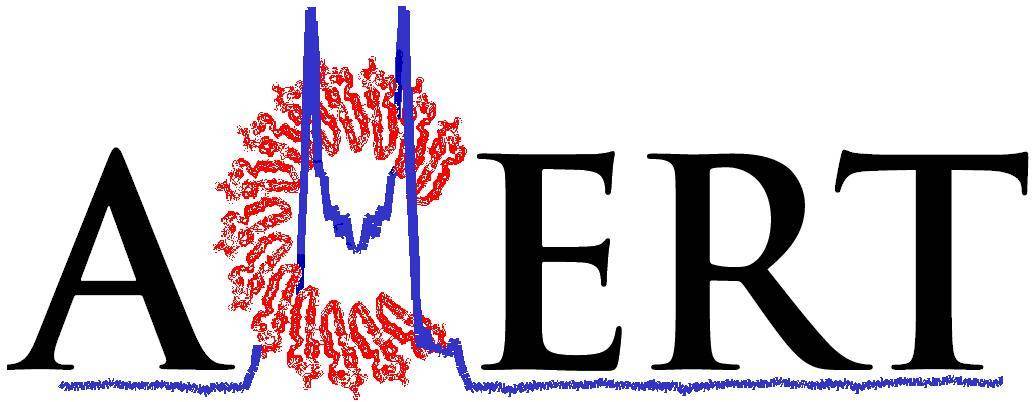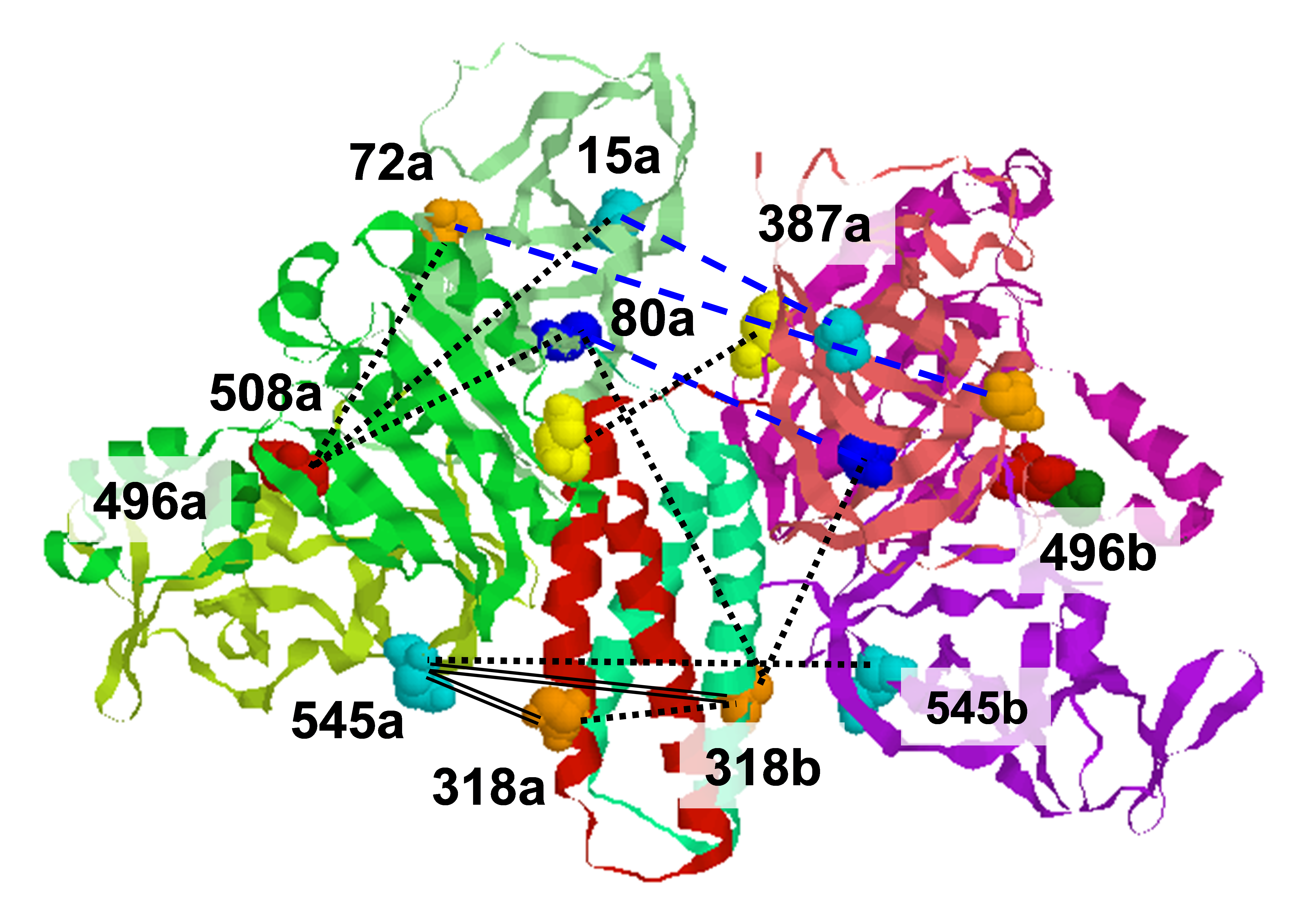.svg) National Institute of General Medical Sciences |
 |
 |
National Biomedical Resource for |
| ACERT's Service and Collaborative Projects | |||
Fabrication of multi-component nanostructures requires the assembly of molecular scale components into ordered arrays. Biological systems offer examples of self-assembling structures that come together to form functional entities. Coiled-coil peptides are a particularly interesting class of biological models that naturally form robust multimers, and that can be tuned to yield dimers and trimers, as well as large fiber assemblies with predictable morphologies. In order for these structures to find applications as nanodevices new methods are being developed that predict and measure their mechanical properties at the nanoscale level. We demonstrate a new method for measuring inter-coil forces using electron spin-labeling and pulsed dipolar ESR spectroscopy (PDS) to measure distances between spin labels. We used the a-helical coiled coil leucine zipper portion of the yeast transcriptional activator GCN4. The coiled-coil structure consists of two identical polypeptide chains ~4.5 nm long and ~3 nm wide. It was synthesized with a spin label attached at residue 246 near the N-terminus, as shown in the Figure on the right. The TOAC spin label was selected because of its rigid fused ring structure (shown in Figure on right), which eliminates motion of the spin-bearing nitroxide group relative to the peptide backbone. The results are summarized in Figure A on the left. It shows the Fourier-transform spectrum from which the distribution of interspin distance, P(r) (also shown), can be derived. It agrees well with that estimated from a molecular model of the TOAC-labeled dimer conformation (Figure on right). The P(r) may be may be used to calculate the mean force between the halves of the coiled coil by analogy with the method used in potential of mean force (PMF) molecular dynamics (MD) calculations. As the Figure below (B on left) shows, the shapes of the calculated (by MD shown by dotted curve) and experimental distance distributions are in excellent agreement. The forces obtained are 110±10 pN for the experimental data and 90±10 pN for the curve calculated from MD. These values are also quite comparable to typical protein folding and unfolding forces that have been measured by single-molecule methods. This method offers a useful complement to existing methods for measuring molecular scale forces. Our results establish the utility of ESR for quantitatively measuring the mechanical properties of peptides and peptide-based nanodevices. Publication: S.V. Gullà, G. Sharma, P.Borbat, J.H. Freed, H. Ghimire, M.R. Benedikt, N.L. Holt, G.A. Lorigan, K. Rege, C. Mavroidis, and D.E. Budil., J. Am. Chem. Soc., 131, 5374-5375 (2009); PMC2888838 |
|||
|
|||
|
Stefano V. Gullà, Gaurav Sharma, Constantinos Mavroidis, (Dept. of Mechanical and Industrial Engineering, Northeastern University, Boston, MA, 02115, USA) Peter Borbat, Jack H. Freed, (ACERT Center for Advanced ESR Technology, Dept. of Chemistry and Chemical Biology Cornell University, Ithaca NY 02115) Harischandra Ghimire, Gary A. Lorigan, (Dept. of Chemistry and Biochemistry, Miami University, Oxford, OH 45056) Kaushal Rege, (Dept. of Chemical Engineering, Arizona State University, Tempe, AZ 85287) David E. Budil (Dept. of Chemistry and Chemical Biology, Northeastern University, Boston, MA 02115) |
|||
|
|
About ACERT Contact Us |
Research |
Outreach |
ACERT is supported by grant 1R24GM146107 from the National Institute of General Medical Sciences (NIGMS), part of the National Institutes of Health. |
|||||
| ||||||||